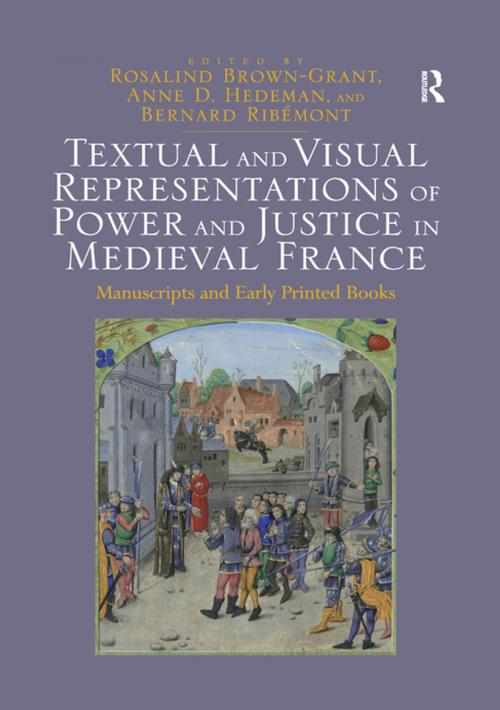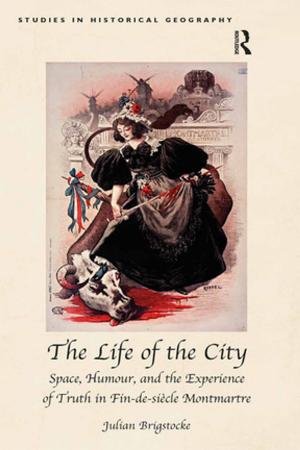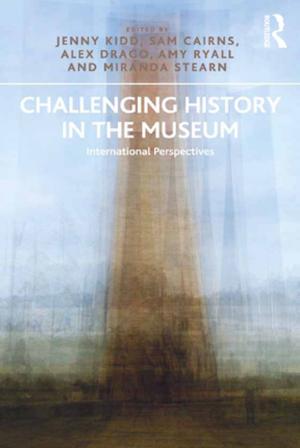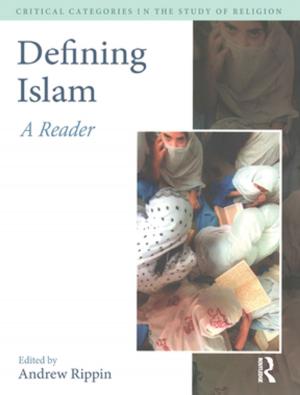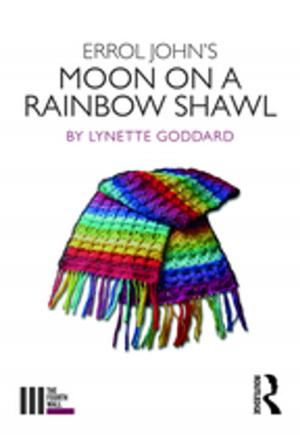Textual and Visual Representations of Power and Justice in Medieval France
Manuscripts and Early Printed Books
Fiction & Literature, Literary Theory & Criticism, Medieval, Nonfiction, History| Author: | ISBN: | 9781351895453 | |
| Publisher: | Taylor and Francis | Publication: | December 5, 2016 |
| Imprint: | Routledge | Language: | English |
| Author: | |
| ISBN: | 9781351895453 |
| Publisher: | Taylor and Francis |
| Publication: | December 5, 2016 |
| Imprint: | Routledge |
| Language: | English |
Thoroughly interdisciplinary in approach, this volume examines how concepts such as the exercising of power, the distribution of justice, and transgression against the law were treated in both textual and pictorial terms in works produced and circulated in medieval French manuscripts and early printed books. Analysing texts ranging from romances, political allegories, chivalric biographies, and catalogues of famous men and women, through saints’ lives, mystery plays and Books of Hours, to works of Roman, canon and customary law, these studies offer new insights into the diverse ways in which the language and imagery of politics and justice permeated French culture, particularly in the later Middle Ages. Organized around three closely related themes - the prince as a just ruler, the figure of the judge, and the role of the queen in relation to matters of justice - the issues addressed in these studies, such as what constitutes a just war, what treatment should be meted out to prisoners, what personal qualities are needed for the role of lawgiver, and what limits are placed on women’s participation in judicial processes, are ones that are still the subject of debate today. What the contributors show above all is the degree of political engagement on the part of writers and artists responsible for cultural production in this period. With their textual strategies of exemplification, allegorization, and satirical deprecation, and their visual strategies of hierarchical ordering, spatial organization and symbolic allusion, these figures aimed to show that the pen and paintbrush could aspire to being as mighty as the sword wielded by Lady Justice herself.
Thoroughly interdisciplinary in approach, this volume examines how concepts such as the exercising of power, the distribution of justice, and transgression against the law were treated in both textual and pictorial terms in works produced and circulated in medieval French manuscripts and early printed books. Analysing texts ranging from romances, political allegories, chivalric biographies, and catalogues of famous men and women, through saints’ lives, mystery plays and Books of Hours, to works of Roman, canon and customary law, these studies offer new insights into the diverse ways in which the language and imagery of politics and justice permeated French culture, particularly in the later Middle Ages. Organized around three closely related themes - the prince as a just ruler, the figure of the judge, and the role of the queen in relation to matters of justice - the issues addressed in these studies, such as what constitutes a just war, what treatment should be meted out to prisoners, what personal qualities are needed for the role of lawgiver, and what limits are placed on women’s participation in judicial processes, are ones that are still the subject of debate today. What the contributors show above all is the degree of political engagement on the part of writers and artists responsible for cultural production in this period. With their textual strategies of exemplification, allegorization, and satirical deprecation, and their visual strategies of hierarchical ordering, spatial organization and symbolic allusion, these figures aimed to show that the pen and paintbrush could aspire to being as mighty as the sword wielded by Lady Justice herself.
